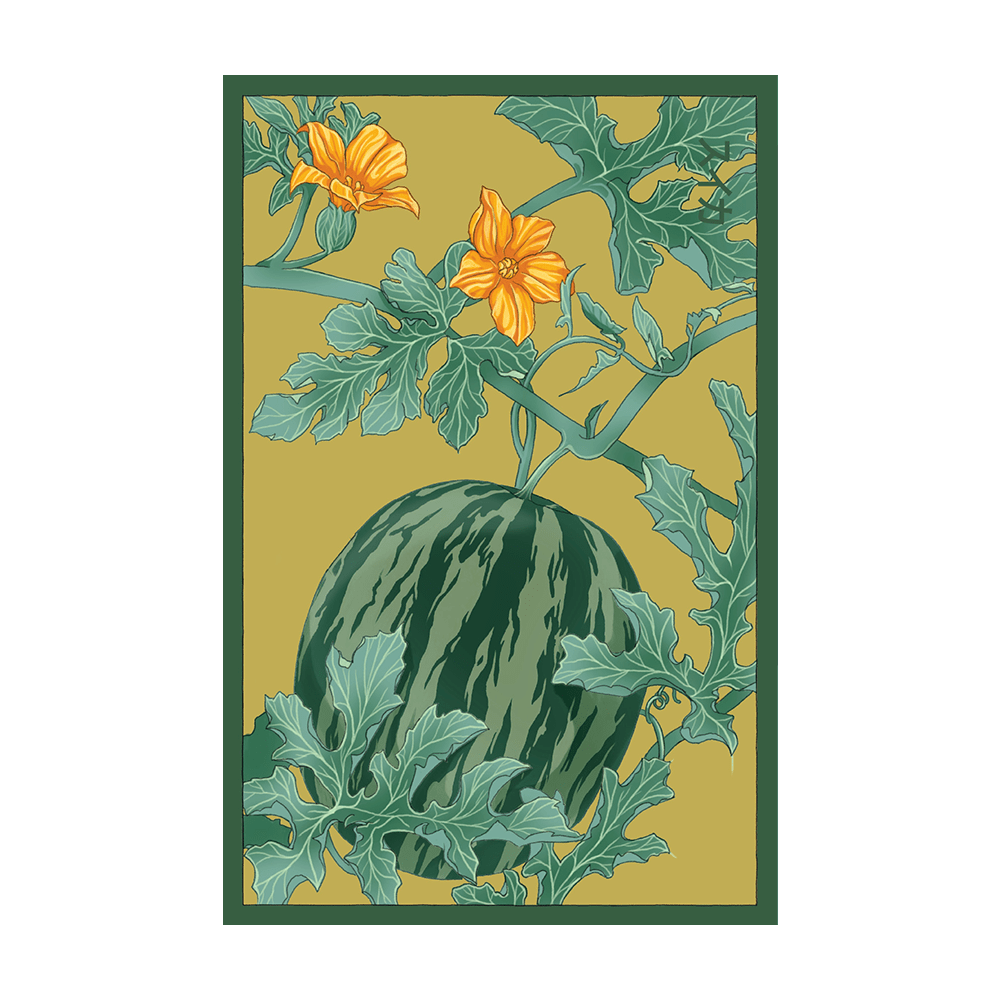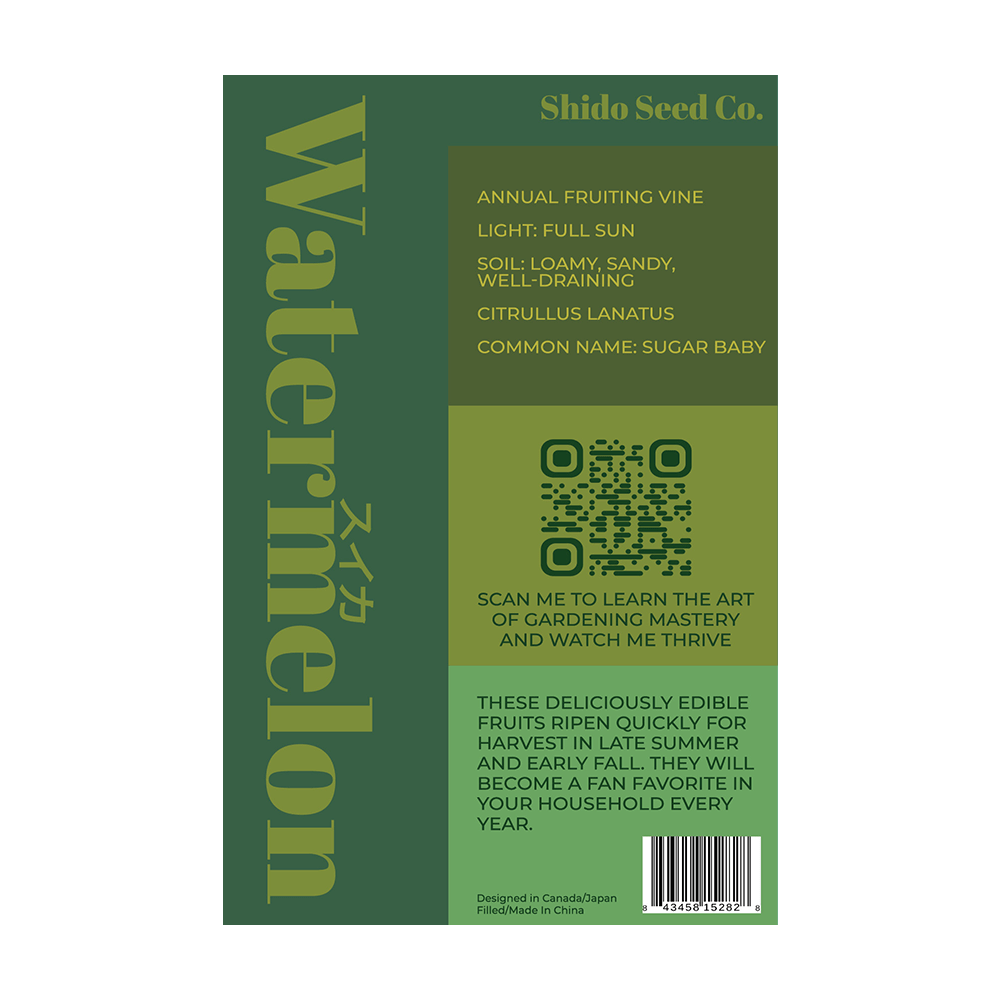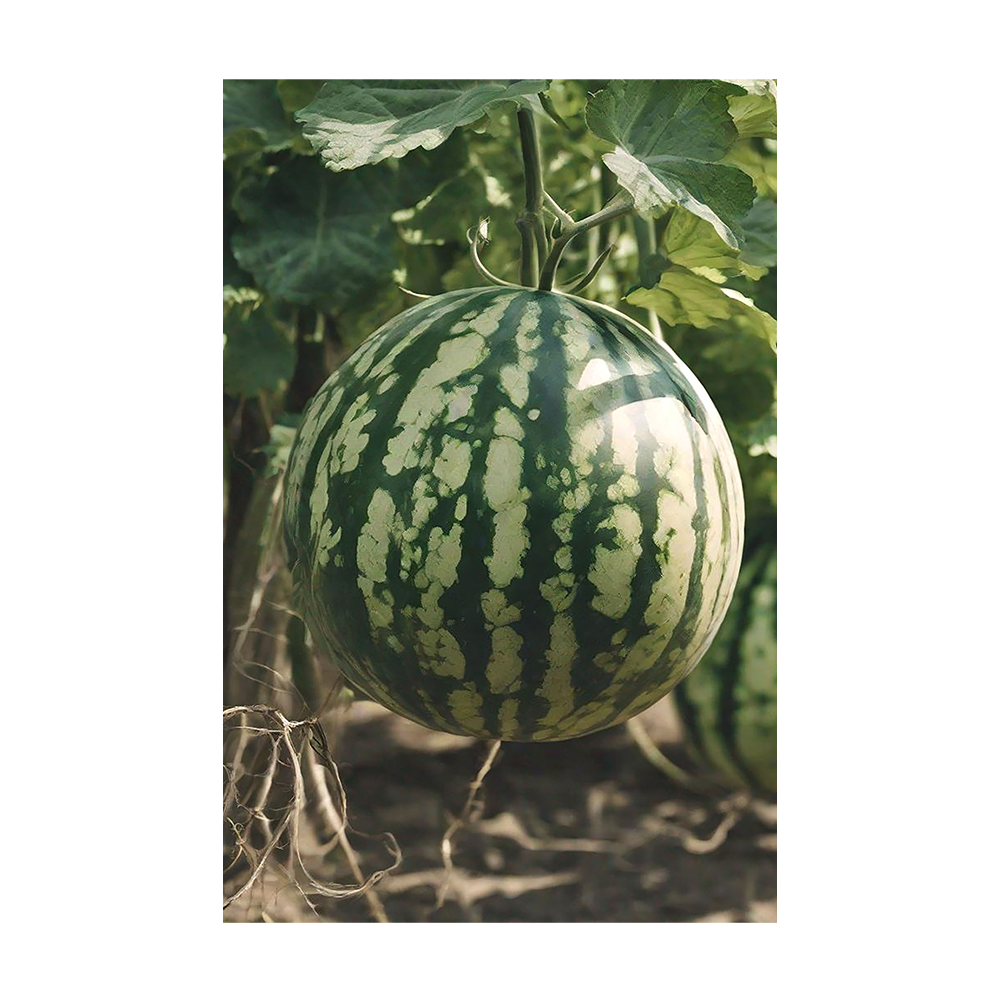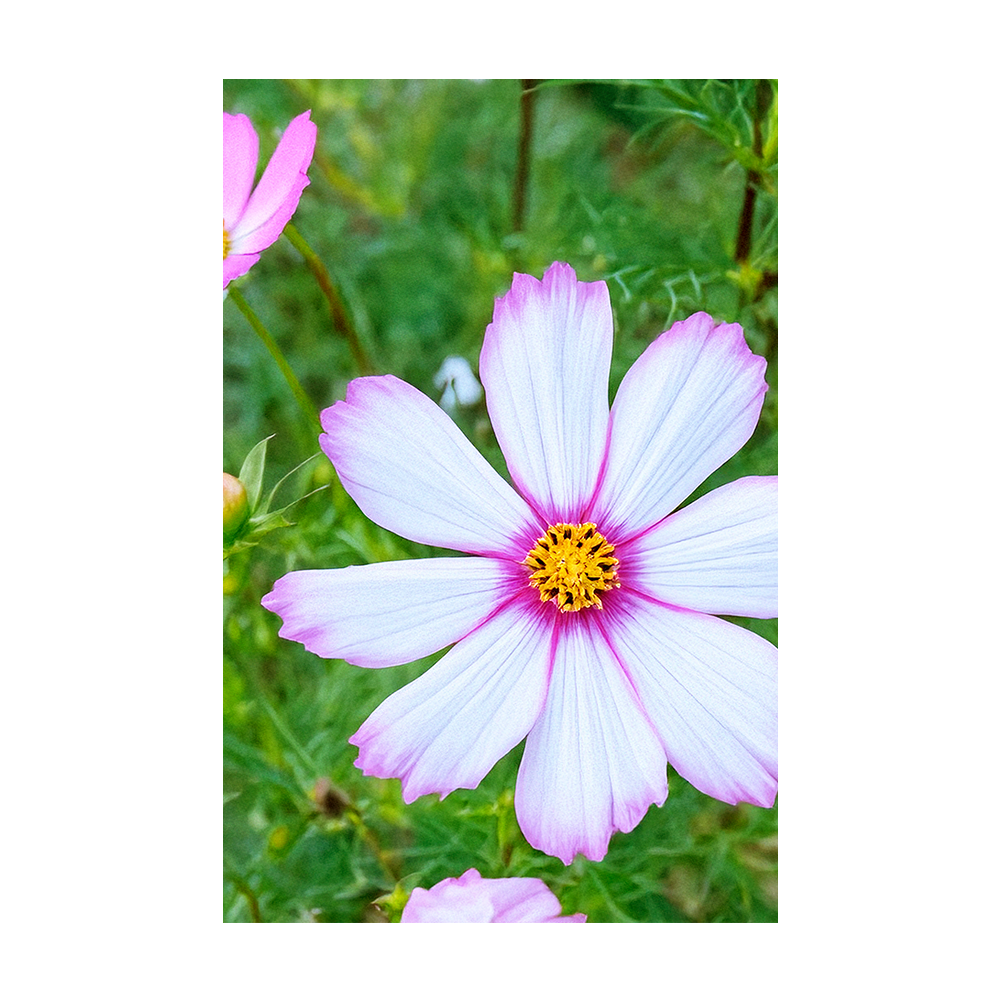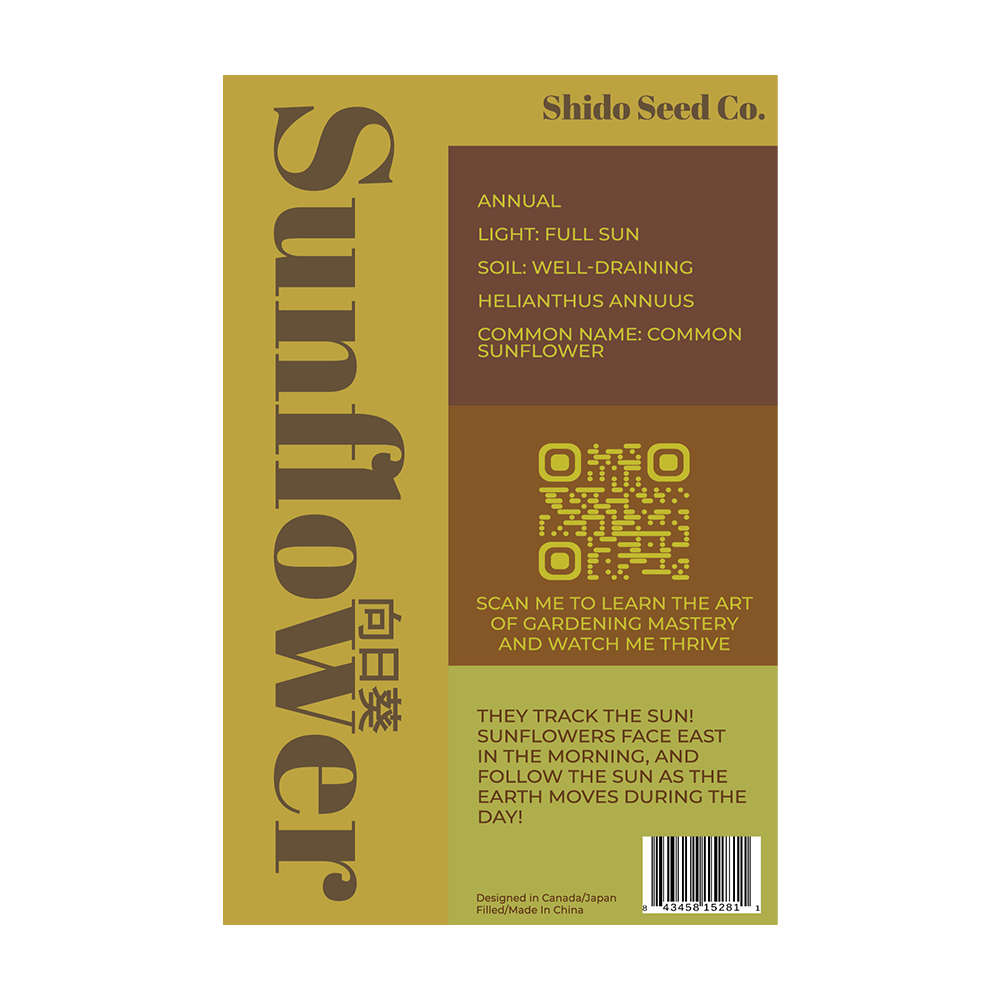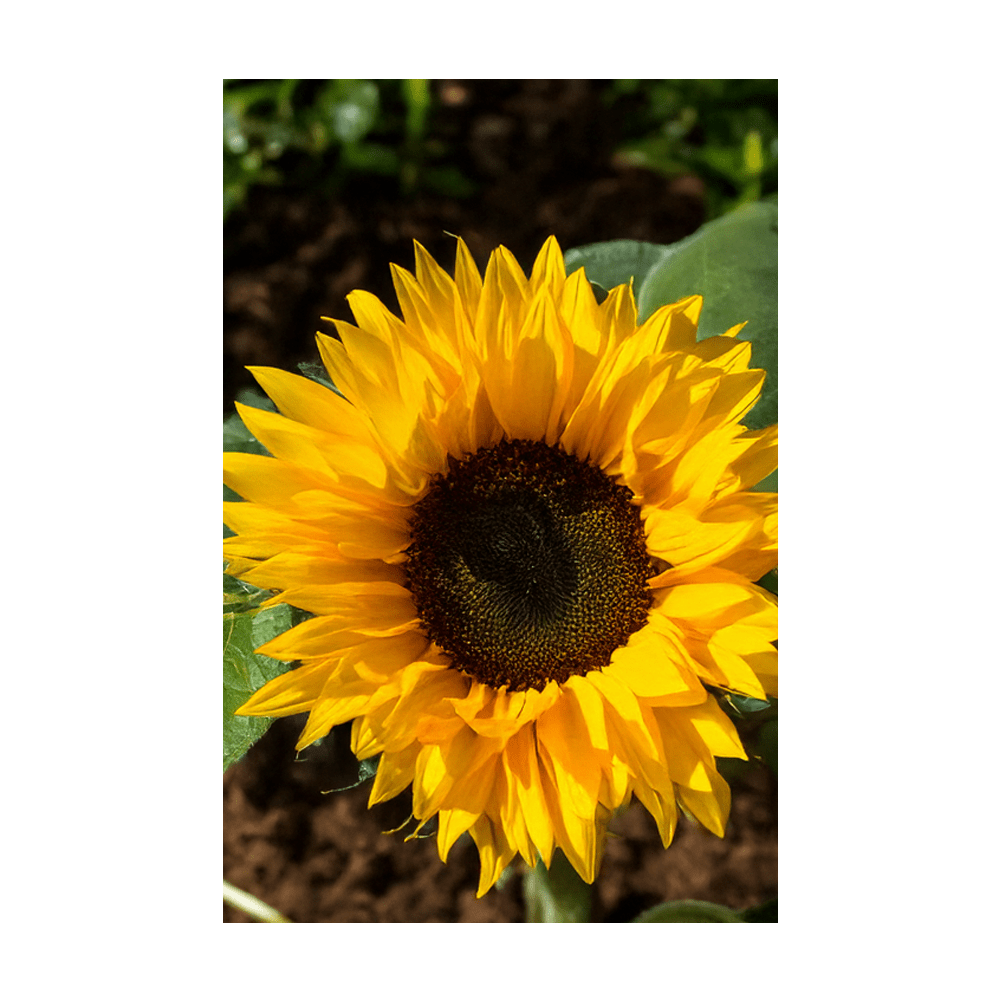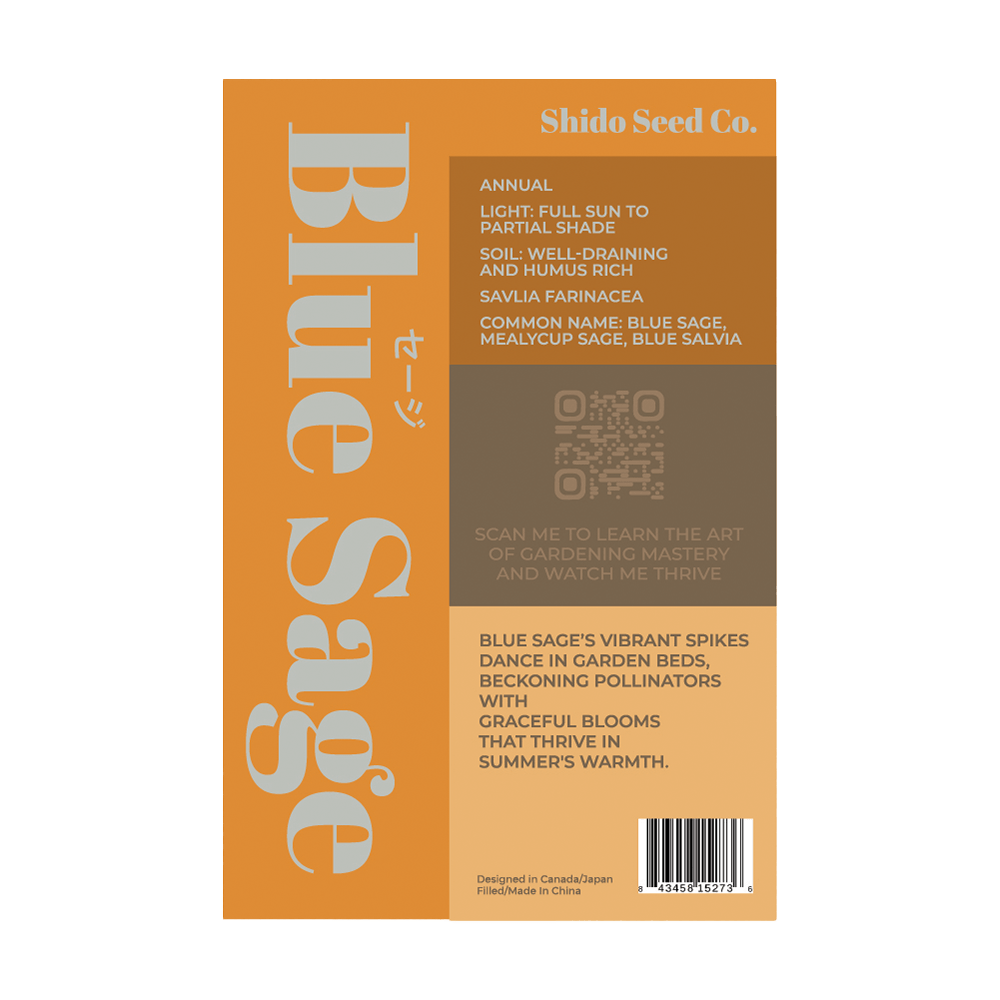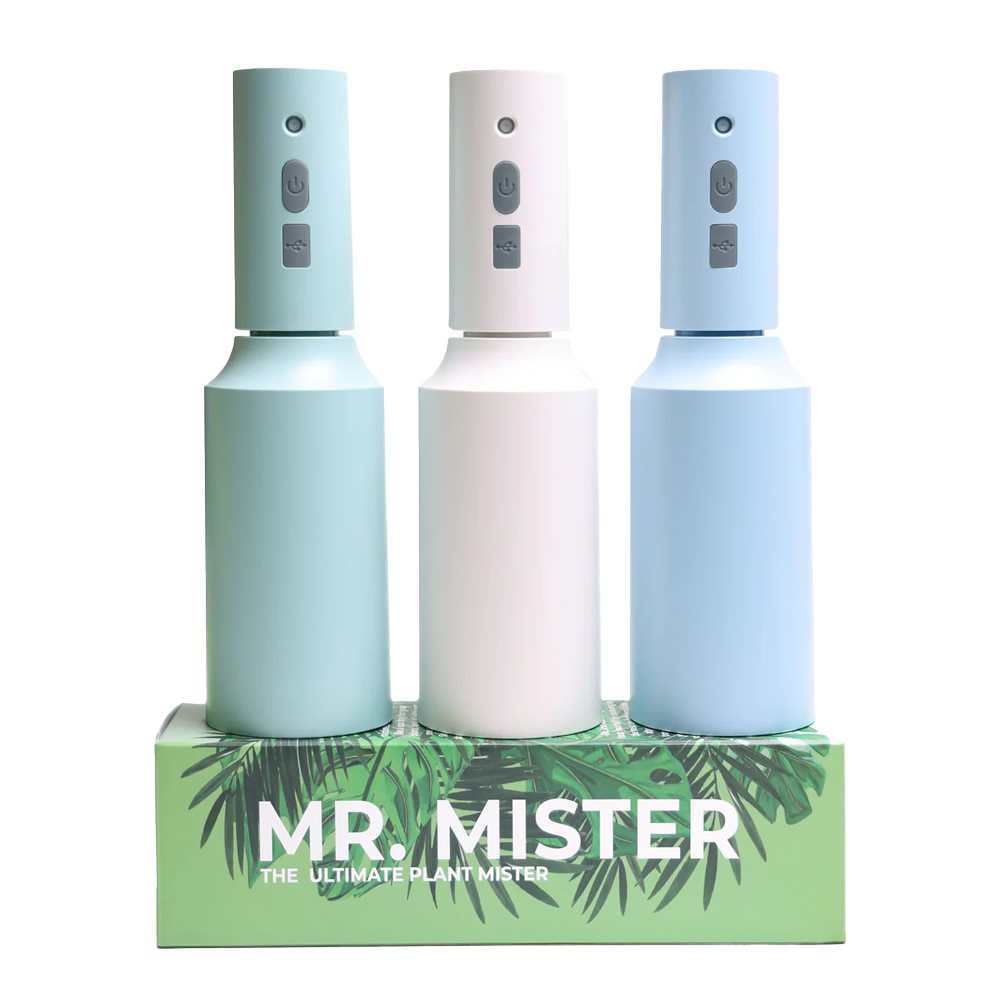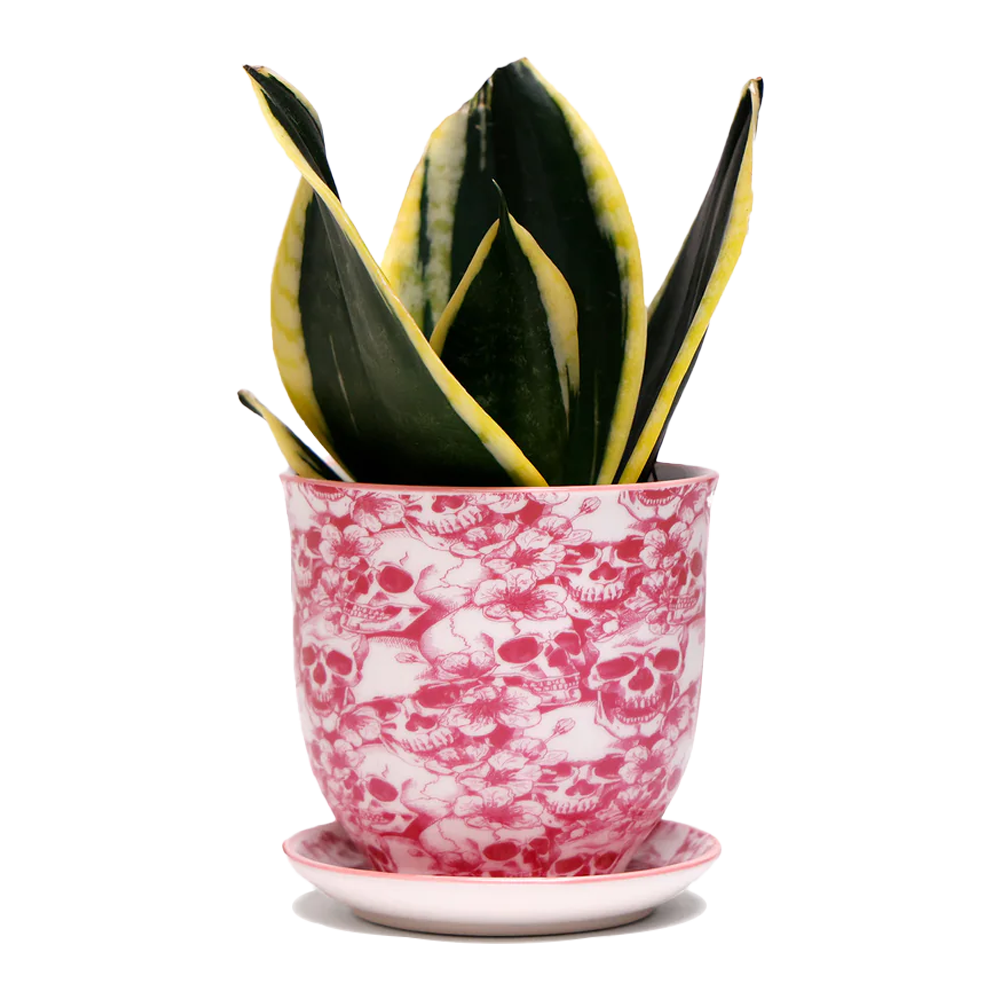Watermelon Flower Seeds Packet
$4.95
Unit price
/
Unavailable
Couldn't load pickup availability
Watermelon (Citrullus lanatus) is a popular, warm-season fruit known for its juicy, sweet flesh and refreshing taste. The watermelon has become a staple in gardens and farms worldwide. With proper care, these sprawling vines produce large, delicious fruits in a variety of colors and sizes. These delicious, refreshing, and easy-to-grow fruits that thrive in warm climates. Their sprawling vines require space, but with proper care, they yield sweet, hydrating fruits perfect for summer.
We stand by the quality of our flower seed packets! With high germination rates and vibrant blooms, your garden is sure to flourish. If you're not completely satisfied, we’ll replace or refund—guaranteed!
Watermelon Flower Seeds Packet
Why Shido Seeds Are the Best
Our flower and vegetable seeds are beautifully packaged little packets of magic. Guaranteed to turn your garden into the envy of the neighborhood. Get your hands dirty and let nature simply do its thing.







